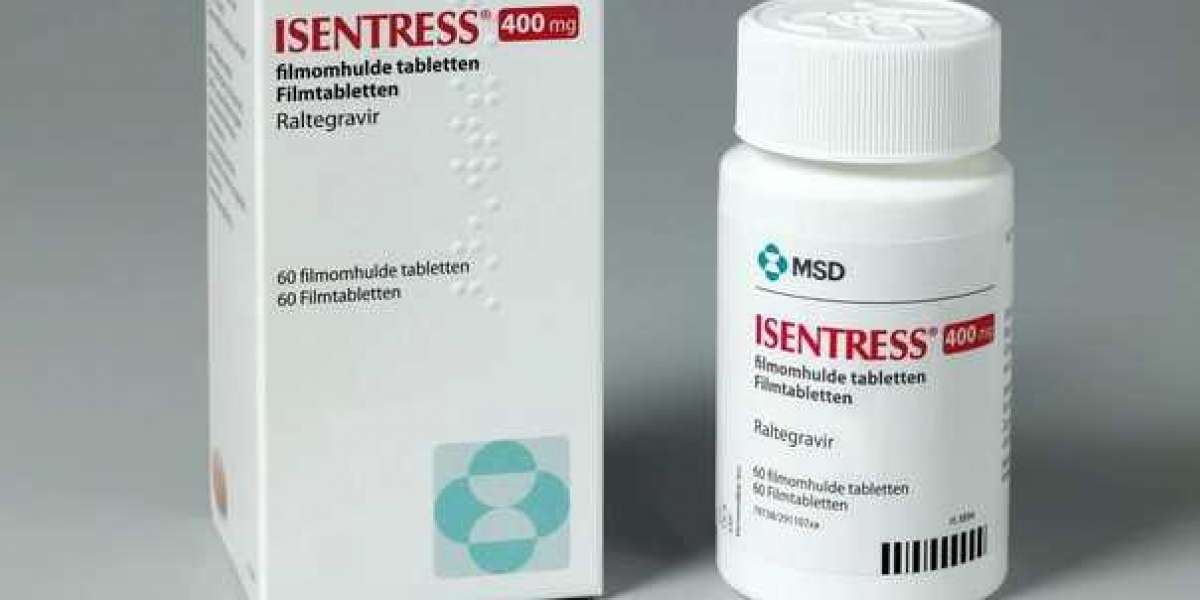HIV treatment has come a long way over the past few decades, transforming what was once a life-threatening illness into a manageable chronic condition. One of the key medications in the fight against HIV is Isentress 400 mg, a powerful antiretroviral that plays a vital role in many combination therapy regimens. If you or a loved one is starting HIV treatment or considering a switch, here’s what you need to know about Isentress 400 mg.
What Is Isentress 400 mg?
By stopping this process, Isentress helps to lower the amount of virus in the body (viral load) and boosts the immune system’s ability to fight infections.
Who Should Take Isentress 400 mg?
Isentress 400 mg is approved for use in:
Adults and children aged 4 weeks and older (weight-dependent dosage applies to pediatric cases)
Treatment-naïve patients (those who are starting HIV therapy for the first time)
Treatment-experienced patients, including those with drug-resistant strains of HIV
Isentress is often prescribed as part of a combination antiretroviral therapy (ART) plan, meaning it’s taken alongside other HIV medications for maximum effectiveness.
How to Take Isentress 400 mg
Standard dosing for adults typically involves taking 400 mg twice daily with or without food. There is also a once-daily 600 mg tablet, but your doctor will determine the best dosing strategy based on your health profile and viral resistance patterns.
Key administration tips:
Take the medication at the same times every day to maintain consistent drug levels in your body.
Do not skip doses, as missing doses may lead to drug resistance.
Always follow your healthcare provider’s instructions and never change your dose without medical guidance.
Common Side Effects
While Isentress is generally well-tolerated, some users may experience side effects, including
Headache
Nausea
Fatigue
Insomnia
Dizziness
Less common but more serious side effects may include:
Muscle weakness or pain
Depression or mood changes
Severe allergic reactions
Notify your doctor if any symptoms persist or worsen.
Drug Interactions to Watch For
Isentress can interact with certain medications, including:
Antacids containing aluminum or magnesium
Rifampin (used to treat tuberculosis)
Certain cholesterol medications
Seizure medications
Be sure to inform your healthcare provider about all prescription drugs, over-the-counter medications, and supplements you’re taking.
Why Isentress Is a Preferred Option
There are several reasons Isentress 400 mg is widely used in HIV treatment plans:
Potent viral suppression: It’s highly effective at lowering viral load quickly.
Low resistance risk, especially when used as part of combination therapy.
Well-tolerated: Most people experience mild or no side effects.
Flexible dosing: Options for once or twice daily based on the formulation.
Staying on Track with Isentress
Taking Isentress consistently is crucial for long-term success. Here are some tips to help you stay on track:
Use reminders or pill organizers
Tie doses to daily routines (e.g., brushing your teeth)
Keep a backup supply if you’re traveling or away from home
Final Thoughts
Isentress 400 mg is a cornerstone medication in HIV treatment, helping patients achieve and maintain an undetectable viral load when used correctly. As part of a comprehensive care plan, it empowers people living with HIV to lead long, healthy, and fulfilling lives.







